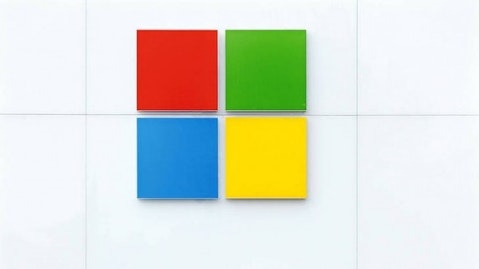This week, much of gaming’s future was revealed at the Electronic Entertainment Expo (E3). Both Microsoft Corporation (NASDAQ:MSFT) and Sony Corporation (ADR) (NYSE:SNE) announced the prices of their next consoles — set to be released this fall — and demonstrated a number of games.
And yet, this week’s biggest game-related announcement might have been Apple Inc. (NASDAQ:AAPL)’s upcoming mobile operating system, iOS 7.
Now, for the first time, Apple will openly support third party controllers (and controller add-ons) for its iDevices. This is the next step in advancing Apple as a major player in the video game industry.
The burgeoning mobile gaming market
According to a Business Insider study, about 40% of the time that people are on their mobile phones, they’re playing games.
As smartphones and tablets have grown in popularity, mobile gaming has emerged as a potent force in the industry. Finnish company Rovio saw its revenue double and its profit jump over 50% in 2012, largely on the popularity of its widely successful Angry Birds franchise.
But it isn’t just small upstarts that are cashing in. Electronic Arts Inc. (NASDAQ:EA) purchased mobile-focused PopCap games for over $1 billion in 2011. Its flagship series, Plants vs Zombies, has been one of the most successful mobile games ever, and its forthcoming sequel is widely anticipated.
Meanwhile, Square Enix, a major Japanese studio, has said declining financial results will force it to shift its focus more towards mobile gaming — a platform with lower development costs.
The limits of mobile gaming
But despite the growing popularity of mobile games, and the widespread use of smartphones and tablets, handheld consoles like Nintendo Co., Ltd (PINK:NTDOY)’s 3DS and Sony Corporation (ADR) (NYSE:SNE)’s PlayStation Vita continue to receive consumer support.
In large part, this might be due to the fact that, for many types of games, touch screen controls just don’t cut it. Apple Inc. (NASDAQ:AAPL)’s move to support external controllers should allow for the development of iOS games that require buttons and joysticks.
To be fair, there are already plenty of iOS controllers out there — but because Apple doesn’t directly support them, they are compatible with only a limited number of games. With Apple moving to create a central standard, more games should appear to support the external controllers.
Could Apple crush Microsoft and Sony?
Before Sony Corporation (ADR) (NYSE:SNE) purchased streaming game company Gaikai, its founder David Perry told CVG that he expected Microsoft Corporation (NASDAQ:MSFT) to create a TV. Perry argued that the idea of a console was becoming obsolete, and that in the future, games would be streamed directly to TVs — no $500 box would be necessary.
If a TV is all that’s needed to get into gaming, Apple Inc. (NASDAQ:AAPL) could be in an interesting spot. The company is widely expected to unveil a TV at some point in the near future, and that TV — combined with external controllers — could be a force in the gaming industry.
One of the original Xbox creators, Nat Brown, wrote on his blog that Apple could destroy Microsoft Corporation (NASDAQ:MSFT)’s Xbox business with a TV:
Apple is already a games competitor broadly, even if Apple-TV isn’t yet a game platform or a console. Mobile generally and iPad specifically have grown the total hours of game play and grown the overall game market. Only in the last 18-24mo has that overall growth turned from a segment-expanding rising tide to a tsunami swamping the console game vendor profit boats hitched to the docks. It is accelerating. Apple, if it chooses to do so, will simply kill Playstation, Wii-U and xBox by introducing an open 30%-cut app/game ecosystem for Apple-TV. I already make a lot of money on iOS – I will be the first to write apps for Apple-TV when I can, and I know I’ll make money.






